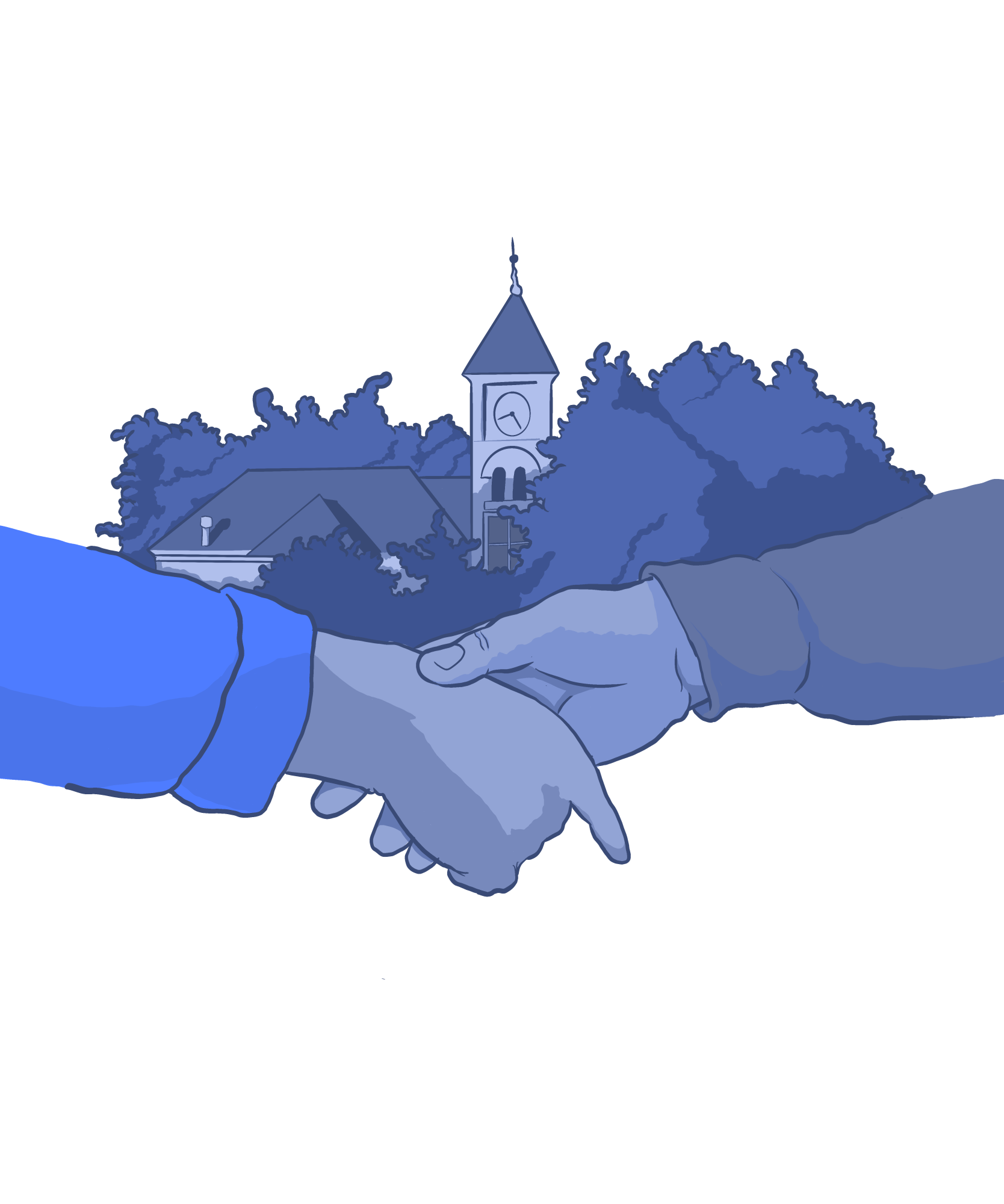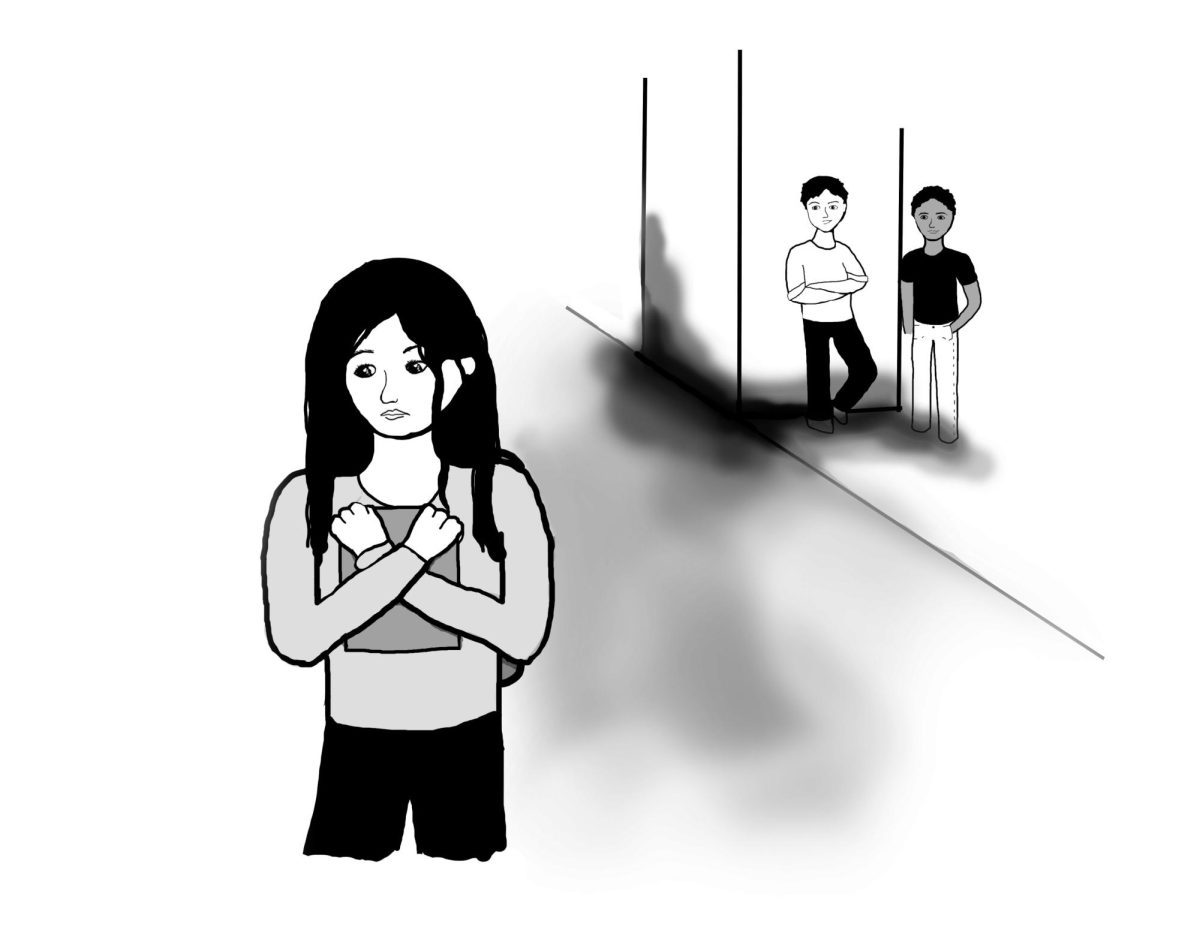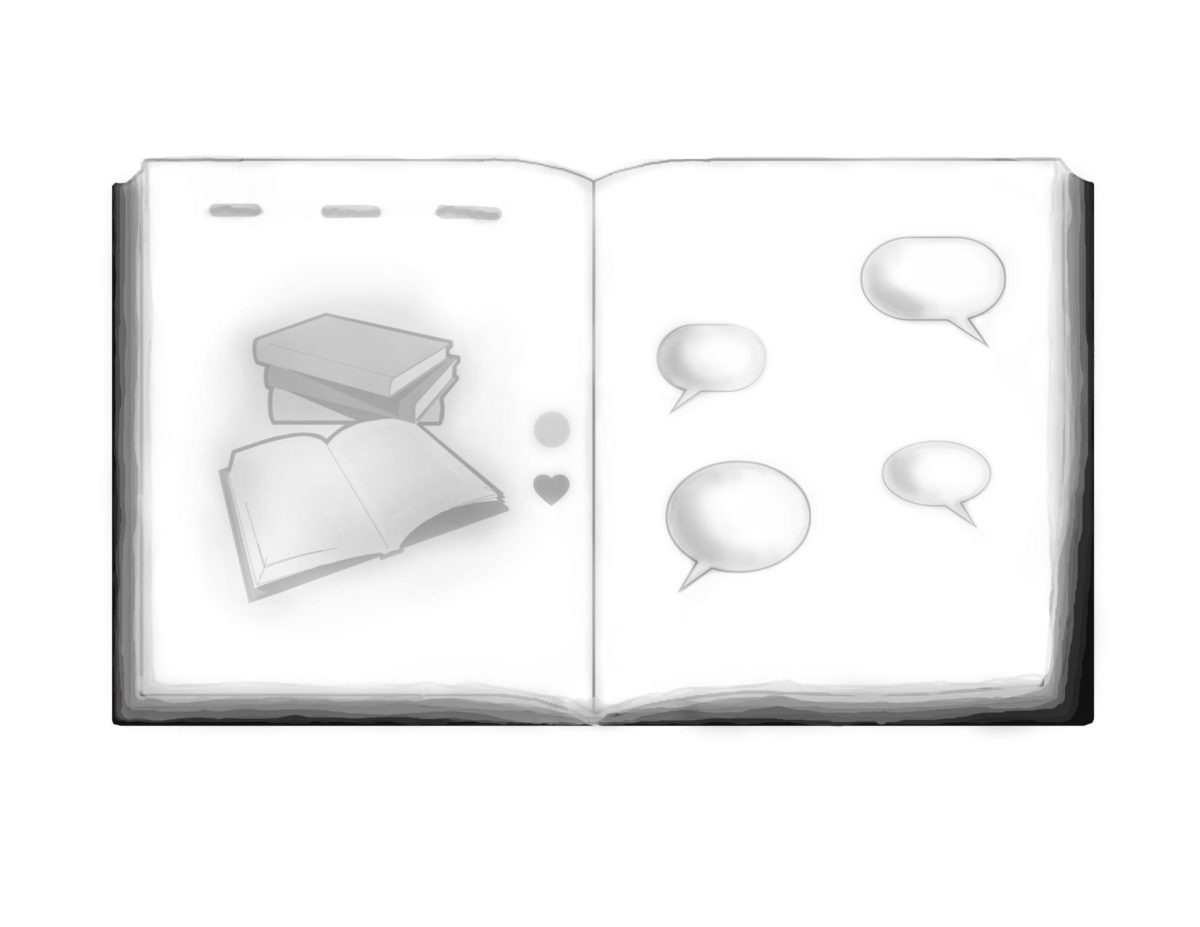
Whitman can feel like its own separate reality, tucked away amidst winding streams, academic buildings and manicured lawns. It can be easy to remain cloistered in this reality, treading familiar paths across Ankeny and building social and recreational lives around peers and campus activities. In fact, it can be hard not to exist solely within Whitman’s borders, as academics demand extensive time and energy, and Whitman provides our core needs right on campus.
The isolation of Whitman’s campus and student body, often called the Whitman bubble, is real, and has been for many years. Victoria Lidzbarski ’05, a School Counselor at Lincoln High School and Whitman alumna, experienced the bubble as a student and continues to see it today.
“There’s no actual bubble, there’s no actual fence, there’s no delineation that says that you have now crossed the line from Walla Walla into Whitman … that doesn’t exist. But it’s this black hole in town for people who have no connection to it,” Lidzbarski said.
Most of Lidzbarski’s students have never set foot on Whitman’s campus, even though it’s in their backyards. She also commented that she goes months without thinking about Whitman, despite having spent her undergraduate years there. For those who live in Walla Walla, Whitman can feel like a blank spot on the map.
Like Lidzbarski, senior BBMB major Barbara Saucedo Gonzalez has experienced the Whitman bubble from both sides. She grew up in Walla Walla and now attends Whitman, which has provided her insight as a Walla Walla local and a Whittie.
“Growing up in Walla Walla, there wasn’t really a good track record between actual townsfolk and the Whitman community. We grew up making fun of the Whitman community and thinking they were very self-entitled,” Saucedo Gonzalez said.
She continued to reflect on how her perspective has changed now that she attends Whitman.
“Now that I’m on the other side and I am at Whitman, I can see where it can be difficult to bridge that gap, especially when a lot of people are coming from different parts of the U.S. or the world and don’t know how to get involved in the right areas where the community is focused on,” Saucedo Gonzalez said.
The bubble exists for both communities, Whitties and the Walla Walla public. This is true despite the vast resources that each group has to offer the other. Julia Ireland, Professor of German Studies and Philosophy, spoke about a lack of community participation in Whitman events, despite these events being free and open to the public.
“To be in an academic environment […] wasn’t natural [for community members], especially being in academic buildings,” Ireland said.
Having noticed this trend, Ireland took steps to bridge the gap. She began to volunteer with the Walla Walla Public Library, aiming to bring Whitman into the physical space of the community and provide the public with useful resources in a comfortable setting. For Ireland, these programs took the form of professor-led talks at the library.
Ireland’s involvement in the library is a perfect example of community engagement at work. The programs at the library provided a service for the community and connected with a wide range of individuals, whether they were retirees excited to learn about a variety of topics, or people who attended talks that aligned with pre-existing interests.
Lidzbarski also cited community engagement as a way to burst the bubble, emphasizing the importance of getting Whitties involved in Walla Walla.
“The more we can involve Whitman students in [Walla Walla], the more the community can see, ‘oh, Whitman’s not big and scary. It exists, it’s a really cool place. It has all these great resources, it just needs to share them,’” Lidzbarski said.
There are many ways for Whitman students to get involved. Interviewees shared specific organizations that would be happy to welcome Whitman volunteers. For example, Tim Parker, Professor of Biology and Environmental Studies, serves on the board of the Tri-State Steelheaders. He shared that a student position is opening on the board, which could provide Whitties with a new perspective on how volunteer organizations work, as well as the chance to make a difference.
Lidzbarski highlighted several organizations that provide numerous volunteer opportunities. She began volunteering with the Walla Walla Immigrants Rights Coalition, and also collaborates with Blue Mountain Action Council (BMAC), Color our Community on Awareness (COCOA) and The Sleep Center. As an employee of the school system, she also pointed to the public schools as being a great place to volunteer.
Lidzbarski emphasized that Whitman students can volunteer at these organizations (and many others – there is no shortage of nearby opportunities), no matter their background.
“[Volunteering] doesn’t mean that you have to be certificated or licensed as a social worker, it just means you have to have time and heart and energy,” Lidzbarski said.
She acknowledged that time is often in short supply for Whitman students, but also reiterated that academics can only prepare students for so much.
“I think if Whitman students could be helped to see that the thing that you’re doing right now for four years is not the end all be all. When I was a Whitman student, I cared so much about my classes and I cared so much about my grades that I couldn’t really see past those blinders,” Lidzbarksi said. “There’s so many other things out there that you could care about that might be more relevant to your future job or your future career or your future happiness.”
Not only can community engagement create stronger connections between Whitman and Walla Walla, but it also has general benefits, both for the volunteer and larger community.
Senior sociology major Alanna Sherman is involved with several community organizations, such as the STAR Project and Whitman’s Community Engagement Center (CCEC), and spoke about the larger importance of community engagement.
“I think community engagement is crucial everywhere you go. Capitalism has enforced cultures of hyper-individualism and stripped the value in community, but I truly believe that we need community to survive,” Sherman said.
Human Resource Generalist and Whitman alumna Carol Allen ’00 serves on the board of Walla Walla’s YWCA and found deep value in this work. Like Sherman, she emphasized the importance of coming together in a community, as well as tapping into a personal passion.
“I think it’s really important to be a part of the community that you’re living in. [Serving in] connection to something that was important to me as a mom, as a woman … being able to give back to my community in this way was a nice connection,” Allen said.
Parker also emphasized that volunteering is a method through which individuals can dedicate themselves to an area that interests them personally. This allows volunteers to explore their passions and make a difference in ways that really matter.
“What I get out of [community work] is the knowledge that I’m contributing to my community in a way that I think is important,” Parker said.
For Parker, the local environment and ecology are important.
“Although I’m not a fish biologist and I don’t have direct expertise in salmonids, I’m an ecologist and I fish. I’m interested in biologically what’s going on with the fish and therefore commit to that,” Parker said. By tapping into his interests and sharing his expertise with the community, he makes a difference in more ways than one.
Ireland also focuses her passions into her work. She loves reading and strives to promote it in various ways, whether it be in the classroom or the community.
“My biggest community service is [saying]: reading, being able to shape arguments, being able to be persuasive, being able to have the courage to ask questions, [are] life-changing skill[s],” Ireland said.
Getting into Walla Walla allows for a greater expression of new opinions and ideas. Engaging in the wider community can help Whitman students connect with others and grapple with ideas in ways that feel difficult on campus.
Community engagement allows new ideas to flourish, as well as new relationships. Saucedo Gonzalez touched on volunteering’s ability to bring people together, no matter their backgrounds.
“I think volunteering is universal,” Saucedo Gonzalez said. “Just know that you don’t have to have the language down. Being able to care for one another is universal enough.”
As a bilingual volunteer, Saucedo Gonzalez spends a lot of time working at the SOS Clinic with people who speak English and Spanish. However, she has also observed how her fellow volunteers who do not speak Spanish can still connect with the Hispanic population through their work. Volunteering connects people and bridges language barriers.
Despite the utility of community engagement, whether it be breaking out of the Whitman bubble, finding personal fulfillment or helping the broader community, it can be hard to find time to get involved in the midst of academics, extracurriculars, and on-campus jobs.
Lidzbarski acknowledged the predicament that college students can sometimes find themselves in when it comes to balancing various commitments, but emphasizes that volunteering is more valuable than we give it credit for.
“I think a lot of people in their twenties are very focused on: ‘oh, I’ve graduated. I’ve got to get a job. I’ve got to pay my loans. I need to work on my career.’ There’s a lot of ambition that happens then. I wish now that I had done more when I was younger because the skills that I get and the relationships and the networking that I do have been huge,” Lidzbarski said.
As students, we have so many tasks to juggle and so little time to manage it. However, volunteering can be an incredibly rewarding activity, both for us as individuals, and for our community. It can start to poke at the Whitman bubble, and, maybe one day, we’ll be able to pop it altogether. Community engagement can enrich our lives, propel us on a path of lifelong learning, and allow us to form relationships as we make the world a little bit better than we found it.
Even though it’s easy to get caught up in grades and classes and campus, there is so much going on just outside the bubble. Reaching out to the CECC, exploring the organizations listed in this article (or the many others that exist throughout Walla Walla), partaking in the upcoming Tri-College Community Day on April 21, engaging in an internship with the help of the Whitman Internship Grant … the possibilities are endless.
Don’t be afraid to explore the community just outside of Whitman’s campus. It has so much to offer, and we have the ability to give back.









